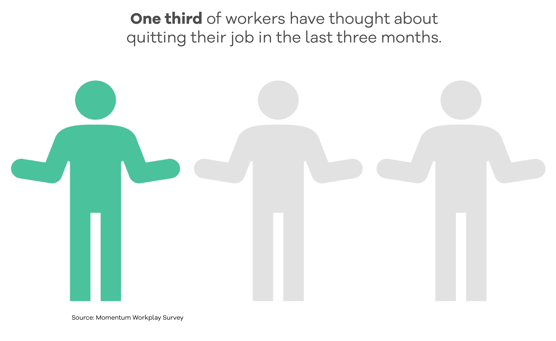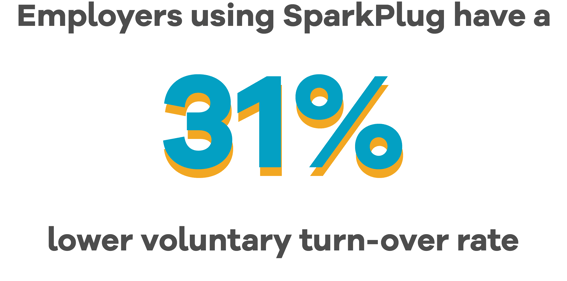“If you don’t have a mask, one will be provided for you.”
“Thanks for your patience: we are understaffed.”
These are the messages that have been greeting customers upon entering retail stores this holiday season. Physical shops are seeing the largest influx of customers since the start of COVID. Forbes recently documented a 16.3% rise in retail spending this October compared to October 2020. While customers are ready to go back to shopping, many are not ready to wear masks or wait in long lines, and they aren’t afraid to yell about it.
Early in the pandemic, retail workers were praised as “essential,” but in 2021, they have been the subject of intense verbal abuse, and sometimes even physical threats. Recently, a clip of an angry customer throwing hot soup in a cashier's face went viral. Working retail today means enduring an onslaught of threats, slander, swears, and even slurs. Retail customers were a handful before the pandemic, and now, after years of being cooped up, rather than embrace a return to social interaction, people have simply become impatient and rude. Strategies that worked in the past (“kill them with kindness”) just aren’t effective in year two of the pandemic.
It can be difficult to see the negative effects of ungrateful customers when, during the pandemic, billionaires have increased their profits by 62%. Jeff Bezos, referring to his recent trip to space, quipped that “You guys paid for all this.” Make no mistake, the new breed of entitled customer forged in the pandemic have made the already thankless job of being a minimum wage retail worker all the more difficult, so much so that it’s affecting employees’ mental health. This has economic consequences for all of us.
Rather than put up with customer abuse, many workers are simply choosing to quit. According to the Bureau of Labor Statistics, 4.4 million people quit their jobs in September of 2021. “Pandemic Customers” have made brick-and-mortar retail workers reevaluate their jobs. Many workers have unsurprisingly decided they would rather receive government stimulus checks and unemployment insurance rather than be abused by ungrateful customers for minimum wage.
Unfortunately, workers who kept their jobs seem to be punished for their decisions to stay, rather than rewarded. Offices across occupations have been returning to work, which means there are more potential customers outside the home with money to spend. Across the country, reduced staff are working round the clock to serve this ever increasing demand of customers, many of whom are not sympathetic to their situation.
To say it’s been difficult would be an understatement. CNBC’s October Momentum Workforce Survey brought to light troubling statistics. Out of all understaffed workplaces, 45% describe their company morale as poor. Half of all workers say their companies are understaffed. Worse, minimum wage workers are more likely to quit their jobs than workers with higher wages, and being a parent doesn’t seem to be affecting retail employees’ decisions on whether or not to quit.

One possible solution to combating entitled and rude customers is for employers to take greater responsibility to protect their employees. In September, The Journal told the story of Pennsylvania Brewery owner Chris Sirianni, who’s store sign message “Be Kind or Leave” went viral. Sirianni knows that retail employee’s work has value, and when their employers recognize that value, everyone benefits. A motivated worker makes for greater sales numbers and better customer service, which in turn, increases their employer’s customer base and ensures customer loyalty. The riddle of COVID has been finding an efficient and fair way to reward employees for their hard work while simultaneously motivating them to work through a customer base that can be unforgiving. While Sirianni’s story of an employer fighting for his employees is heartwarming, a witty sign is not a permanent solution to the problems retail workers are facing today.
Other attempts by employers to express gratitude to their employees have rung so hollow that they've gone viral. Kaiser Permanente nurses shared a photo of a rock given to all employees, meant to be decorated with kind words to remind them that “they rock.” The Reddit forum “r/antiwork” which has 1.2 million users, have been mocking this “pizza party” reward mentality.
These pre-pandemic employee rewards just aren’t going to cut it. Something new needs to help bridge the gap between employers and their employees amidst customer chaos.
After spending our early careers working in government and finance, my co-founder Andrew Duffy and I realized that there was an opportunity to disrupt “business as usual”. Rather than lump all retail workers together as “unskilled” and pay them a set minimum wage, we knew technology could be used to re-align interests across economic stakeholders. Amidst the COVID-19 pandemic, we launched SparkPlug.
The SparkPlug app, used by retail and food-service employers and employees alike, “gamifies” and incentivizes frontline work in a fun, interactive way through sales goals, contests, and commissions. Every time an employee makes a sale, SparkPlug logs the interaction. This data is then recorded and visualized for employers. With SparkPlug, employers can automate sales reporting, provide direct compensation tied to employee performance, and compare sales trends across time frames and employees.

Incentive programs work because they’re an extension of what great retail associates already do naturally: recommend products from great brands to the customers they serve. With these programs, pandemic workers get an added acknowledgement for their work in the trenches. SparkPlug redefines the modern retail space by directly incentivizing and rewarding the sales and customer service of retail employees, allowing them to earn their fair share of company profits. Because every customer interaction is logged, SparkPlug ensures that workers are rewarded in direct proportion to the customers they serve. This accountability incentivizes and motivates an employer’s workforce, creating a platform for workers to stand out as individuals, and be rewarded for their efforts.
The future of incentive programs is bright. Not only can employers reward employees based on raw sales performance, but there’s opportunity to leverage the collected data to optimize the in-store experience beyond a single visit. By tracking data concepts like customer repurchase rates of the products they were recommended, likelihood of customer return to the store within a certain period of time, or post-hoc customer satisfaction ratings of their experience with salespeople, employers can actually incentivize employees based on their ability to reach the combined ideals of customer satisfaction, retailer optimization, and brand revenue -- all while rewarding their sales teams and boosting morale.
As the #1 workforce incentive app on the market, SparkPlug generates better economic outcomes for retail workers and employers alike. Employers using SparkPlug earn 22% higher average tickets than those not using the service, and have a 31% lower voluntary turn-over rate, as well as a 76% increase in customer satisfaction. COVID has changed the retail world forever, and it’s time for stores to adapt and step into the world of data.
.png?width=56&height=56&name=Jake-01%20(1).png)



